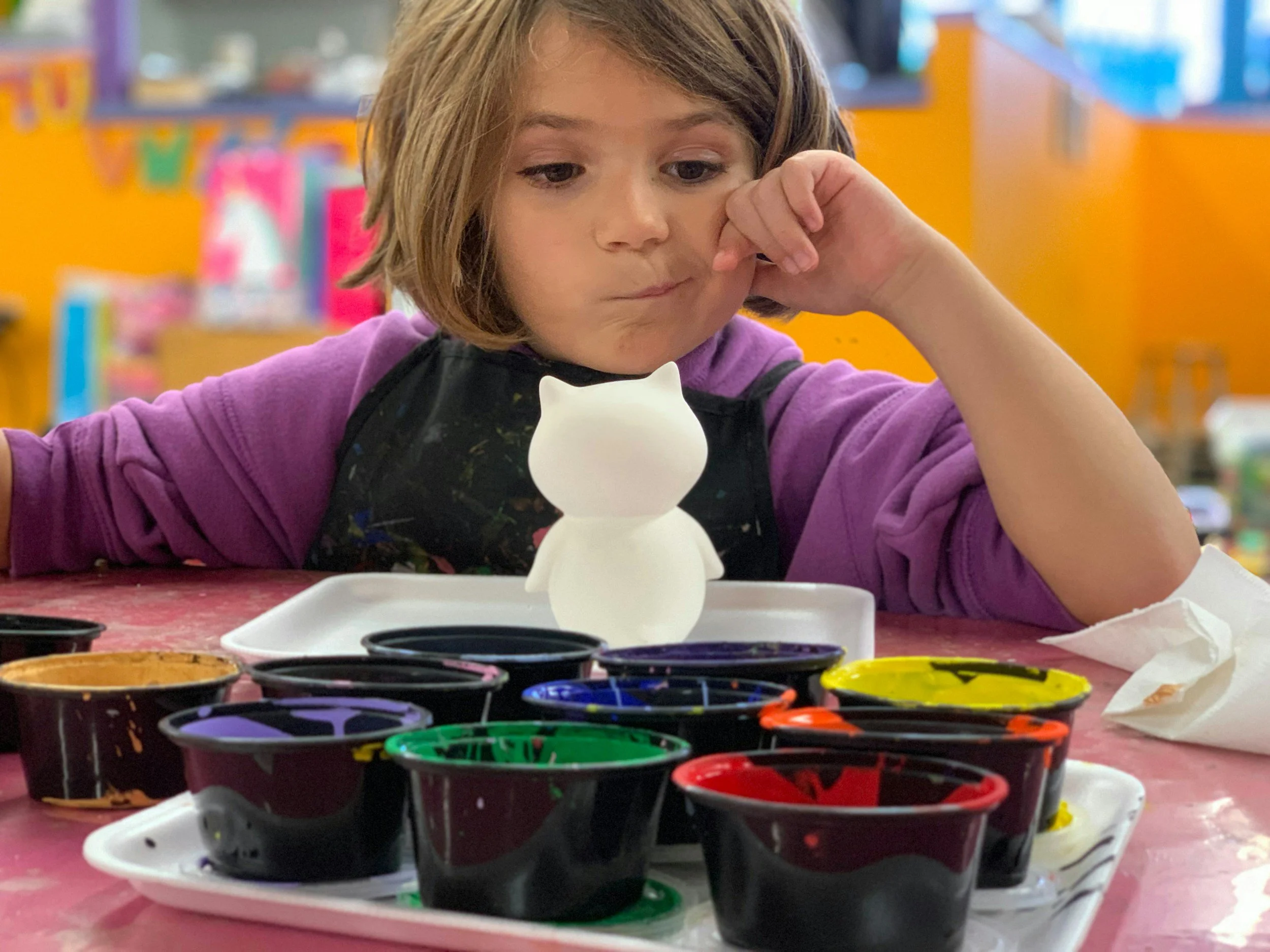Can Play Therapy Help with ADHD? What Parents Should Know
Parenting a child with ADHD can feel like trying to keep up with a whirlwind. The energy, curiosity, and creativity are incredible—but so are the challenges. From difficulty focusing on tasks to impulsivity and emotional ups and downs, ADHD can impact every part of daily life, including school, home routines, and relationships. Many parents look for strategies beyond medication to help their children thrive, and one approach gaining attention is play therapy.
So, can play therapy really help with ADHD? Let’s explore what it is, how it works, and why it may be a valuable resource for families navigating ADHD.
What Is ADHD?
ADHD (Attention-Deficit/Hyperactivity Disorder) is a common neurodevelopmental condition that affects how children pay attention, control impulses, and manage their energy levels. Kids with ADHD may have trouble sitting still, following directions, or staying focused on tasks that don’t interest them. They may also act without thinking or struggle with emotional regulation. While these behaviors can be challenging, it’s important to remember that ADHD is not about laziness or bad behavior—it’s about differences in how the brain works. With the right support, children with ADHD can learn strategies to manage challenges and thrive.
ADHD can look different in every child, but most symptoms fall into three main categories: inattention, hyperactivity, and impulsivity.
Inattention
Has difficulty sustaining focus on tasks or play activities
Gets easily distracted by sights, sounds, or their own thoughts
Makes careless mistakes in schoolwork or forgets instructions
Struggles to follow through on chores or homework
Frequently loses items like books, toys, or school supplies
Hyperactivity
Fidgets, squirms, or has trouble sitting still
Runs or climbs in situations where it isn’t appropriate
Talks excessively or seems “always on the go”
Has difficulty engaging in quiet activities
Impulsivity
Blurts out answers before questions are finished
Interrupts conversations or intrudes on others’ games
Has difficulty waiting their turn
Acts without thinking, sometimes leading to accidents or conflicts
See video below for a great example of an
ADHD child vs Non-ADHD
What Is Play Therapy?
Play therapy is a therapeutic approach designed especially for children. Instead of sitting across from a therapist and talking—something that can be difficult for kids—play therapy uses toys, games, art, and imaginative activities as the medium for communication and growth.
A trained play therapist observes and guides the child through structured or unstructured play. The goal is not simply to “play,” but to help children:
Express thoughts and emotions they may not have words for.
Build problem-solving and coping skills.
Practice emotional regulation.
Strengthen social skills and self-awareness.
For children with ADHD, play therapy creates a safe, supportive environment where they can practice new skills while engaging in something fun and natural—play.
How Play Therapy Helps Children with ADHD
ADHD presents unique challenges that go beyond inattention or hyperactivity. Kids may struggle with frustration tolerance, impulsivity, or difficulties in social interactions. Play therapy addresses these areas in developmentally appropriate ways:
1. Improving Focus and Attention
Play therapists use games and activities that encourage children to concentrate for short periods of time. Over sessions, these activities gradually build a child’s ability to sustain attention and follow directions, all while reducing the frustration that often comes with academic or structured tasks.
2. Strengthening Emotional Regulation
Children with ADHD often feel emotions intensely and may react quickly. Through role-playing, storytelling, or art, play therapy helps kids recognize feelings, label them, and practice healthier ways to cope. For example, a child may act out frustration with toys, and the therapist can guide them toward calming strategies like deep breathing or problem-solving.
3. Reducing Impulsivity
Interactive play activities help children slow down and think before acting. Games with rules, such as board games or turn-taking activities, encourage patience and self-control. Over time, these lessons transfer outside the therapy room into daily life.
4. Building Social Skills
Many children with ADHD find it hard to navigate friendships. Play therapy offers opportunities to practice sharing, cooperation, and empathy in a guided setting. Whether it’s pretend play with dolls or collaborative building with blocks, the therapist can highlight positive interactions and coach the child toward better communication.
5. Boosting Self-Esteem
ADHD can sometimes lead to negative feedback from teachers or peers, leaving kids feeling “different” or “bad.” In play therapy, children experience success and mastery. They learn that their creativity, energy, and imagination are strengths—helping build confidence and resilience.
What Parents Can Expect
If you’re considering play therapy for your child, here’s what the process usually looks like:
Initial Assessment – The therapist meets with parents to gather background information, discuss challenges, and set goals.
Play Sessions – The child attends weekly or biweekly sessions where the therapist introduces play-based activities tailored to their needs. Sessions usually last 50 minutes.
Parental Involvement – Parents may receive feedback, guidance, or even participate in sessions. The therapist may suggest strategies to use at home, such as routines, calming techniques, or positive reinforcement.
Progress Over Time – Like any therapy, results aren’t instant. With consistency, parents often notice improvements in attention, self-control, and emotional regulation after several months.
Combining Play Therapy with Other Supports
Play therapy is not a one-size-fits-all solution, and it often works best as part of a comprehensive plan for ADHD. Some children benefit from a combination of approaches, such as:
Behavioral therapy or parent training programs.
Classroom accommodations through 504 plans or IEPs.
Medication, if recommended by a pediatrician or psychiatrist.
Consistent routines, exercise, and healthy sleep habits at home.
When integrated with other supports, play therapy can provide children with ADHD a well-rounded foundation for success.
Tips for Parents Considering Play Therapy
Find a qualified therapist. Look for a licensed professional trained in play therapy, such as an LPC, LMFT, or psychologist with play therapy certification.
Be patient. Progress may take time, but small steps add up. Celebrate improvements in focus, behavior, or emotional expression.
Stay involved. Ask the therapist for strategies to reinforce skills at home. The more consistent the approach, the stronger the results.
Focus on strengths. Remember that ADHD is not just about challenges. Many kids with ADHD are highly creative, innovative, and enthusiastic. Play therapy nurtures these strengths while addressing struggles.
Final Thoughts
Play therapy offers children with ADHD more than just an outlet for energy—it gives them tools to manage emotions, build relationships, and thrive in everyday life. For parents searching for supportive, nonjudgmental, and engaging ways to help their child, play therapy can be a valuable part of the journey.
While no single treatment works for every child, the power of play allows children with ADHD to connect, express, and grow in ways that feel natural and enjoyable. With the right support, children can learn not only to manage their ADHD but also to embrace the unique strengths that come with it.
Other Services We Offer in Katy and Surrounding Areas
At AP Counseling Group, we know that families face a variety of challenges beyond separation anxiety. We offer Christian counseling, trauma counseling, and more. Whether your family is navigating ADHD, anxiety, or depression, or you’re seeking parenting support, our therapists are here to provide compassionate care tailored to your needs. Our teen counseling helps teens facing academic stress, peer pressure, and identity concerns. As well as adult counseling for balancing family, career, and personal well-being. Whatever stage of life you’re in, our goal is to help you and your loved ones feel supported, understood, and equipped with tools to thrive.




